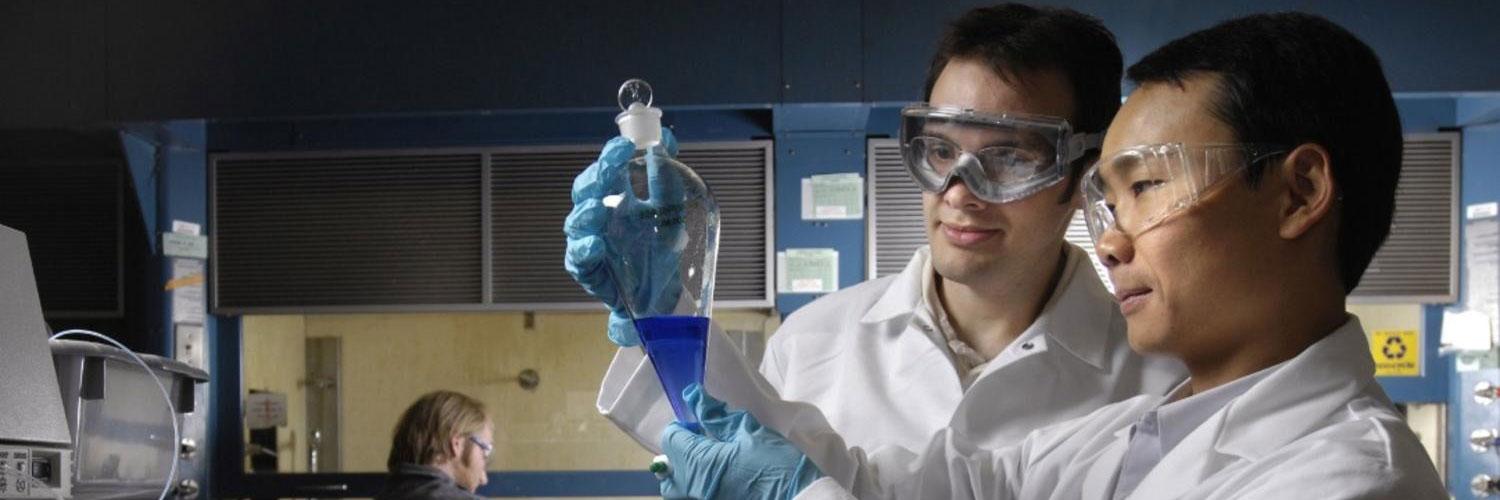Research Information for Transfer Students

What is undergraduate research?
In many of your early science courses, you follow a recipe or a lab procedure to reach an expected outcome. These are valuable experiences to learn techniques required for the subject or to understand the experimental process.
Undergraduate Research is an opportunity to work on projects where the outcome isn’t known in advance. You might have the chance to create new knowledge or add to our understanding of a problem.
This means that research is not limited to the sciences or technical areas. It includes thinking and questioning across all academic fields.
Why should I do undergraduate research?
- Strengthen communication skills
- Gain confidence
- Build your resume
- Develop critical thinking skills
- Build depth and breadth of knowledge
- Increase academic success across disciplines
- Open new career or education paths
- Make a difference
- Increase adaptability
- Make connections in the field
- Change personal perspectives
What can I research at CU Boulder?
Thinking of something to research can be overwhelming. If you already have a question to explore, that’s great!
For first experiences, it’s often easiest to see what types of projects already exist. CU Boulder has lists of open opportunities and staff to help you get connected. If you don’t find something you like, then maybe create your own!
Don’t limit yourself to your major. Research can be cross-disciplinary. Research can be clinical or technical. Research can be creative and artistic. Research seeks to answer a question, add to a body of knowledge, or create something entirely new.
Find something that excites you!
Myths about research
Truth: All students can participate in research! The fastest way to get involved is to start with open projects that are requesting students. Be proactive and reach out. Faculty and staff are excited to get you connected.
Truth: Research topics are not limited to STEM fields. Research requires skills in organization, communication, critical thinking, analysis and perseverance. Creativity and outside-the-box thinking are a plus in every area!
Truth: Most students don’t have any research experience before starting at a university. If skills or techniques are required, most introductory research experiences teach you what is necessary. Curiosity is a must-have skill!
Truth: For introductory experiences, students are assigned a faculty or graduate student mentor to help guide them. Many projects involve teams of students. The best ideas often come from conversation and sharing!
Truth: Many research experiences offer course credits, a stipend or honorarium. For summer experiences, expect to be full-time for most of the summer. The stipend helps offset expenses that might be involved.
What can I do at my community college to prepare?
- Take a general course to see what interests you.
- Reach out to instructors/faculty or professionals for jobs you might want in the future.
- Join a club or organization.
- Keep track of skills gained from work experience like leadership, teamwork, and time management.
- Participate in Undergraduate Research Experiences for Community College Students:
- Check for research experiences on your campus.
- Research Experience for Community College Students (RECCS)
- Geo-Launchpad
- National Science Foundation- Research Experiences for Undergraduates (search Community College)
Resources at CU Boulder
Getting involved is the best way to ease your transition and find your place at CU Boulder. Undergraduate Research is a great place to start!
- Join a club.
- Attend industry and career fairs.
- Interact with graduate students and faculty in areas that interest you. Network!
- Participate in departmental events to learn more about research and careers.
- Complete an internship.
- Join a research experience:
- Undergraduate Research Opportunities (UROP)
- Studio Lab (includes research experience in the social/behavioral sciences)
- Engineering Research Opportunities
Other helpful resources
- University of Maryland Undergraduate Research Modules
- Council on Undergraduate Research Resources: CUR’s Student Resources
- Undergraduate Research Projects Step-By-Step

